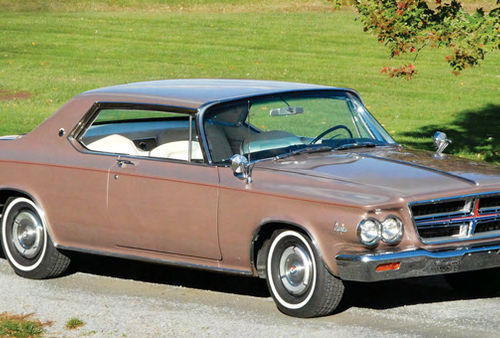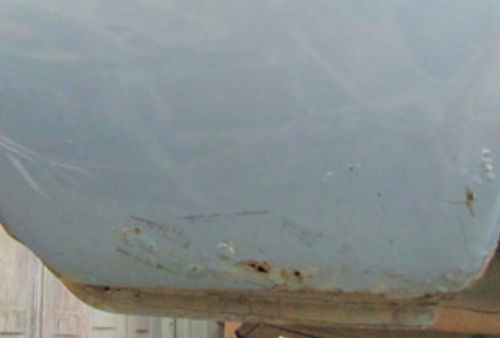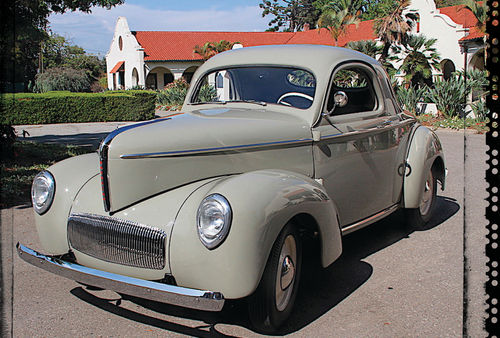Why are Corvette brakes so troublesome?
Question:
I’ve found that 1965-82 Corvette brakes are quirky at best. It takes enormous fortitude to drive this vehicle with failed brakes. I have done it a couple of times and I’m lucky I haven’t front-ended my car.
When the brakes went to the floor I have checked the brake fluid and it was low. After I replenished the brake fluid this restored 1/3 to 1/2 the brake pedal. My best advice to others is to check the brake pedal before moving the vehicle.
My experience is with a 1969 Corvette with stainless steel sleeved brake calipers and silicone brake fluid. The car has standard brakes without a booster.
The situation has really changed my driving style. I go at low speed and don’t follow too closely!
Upon intense inspection the right front was found to be leaking.
What is the defect in the system? What can be done to correct it? Are there aftermarket calipers available to replace the OEM calipers?
Answer:
In my experience and opinion 196582 Corvette brakes are as good as or better than the brakes found on any other vehicle of that era but there are two inherent problems that are sometimes seen with these brakes.
The first stems from the fact that the caliper housings are made from cast iron while the pistons are machined from aluminum. Close proximity of dissimilar metals in the presence of a conductive solution normally leads to the creation of a low energy electrical current flow from the metal having the higher position in the galvanic series to the metal with the lower position. This flow of electrons manifests itself as corrosion and in the case of Corvette brake calipers that means corrosion in the piston bores of the caliper castings. This is, of course, not unique to Corvette calipers but it is more commonly seen in Corvette calipers simply because so many Corvettes are still on the road decades after they were built. The long-term solution to this is to machine the piston bores larger and press in stainless steel sleeves. You mention that your calipers are sleeved and as long as the work was done properly using high quality sleeves the galvanic corrosion problem essentially disappears.
The second brake-related problem that is more prevalent in Corvettes than most other cars entails the rear calipers sucking in air. The short axles employed as part of the 1963-82 independent rear suspension design are more prone to excessive runout than are longer axles found in most cars. Excessive runout causes the brake rotors to wobble and this causes the caliper’s pistons to pulsate in and out very rapidly. This rapid, ongoing pulsation causes the pistons to suck in air past their seals. The cure for this is proper setup of the rear hub assemblies.
Notwithstanding these issues, I can’t say what exactly caused your right front caliper to lose fluid but can say there’s no inherent defect in your Corvette’s system that’s to blame. Your car is about 42 years old and as with any vintage vehicle you need to make sure your entire brake system is in good working order. Even if they look OK, your steel brake lines may be corroded on the inside. If you want to be entirely sure that they are solid throughout replace them with new lines, which are readily available from any of the major restoration parts suppliers. In a similar vein, if your brake hoses are more than seven or eight years old or if you have no idea how old they are, play it safe and replace them with new hoses.
A lot of people assume that once they invest in stainless steel sleeved calipers the calipers will last forever. While the galvanic corrosion problem goes away the calipers still utilize good old-fashioned rubber seals and over time these will degrade and need to be replaced. The same is true for the master cylinder—if you’ve had an original master sleeved it still needs new seals periodically.
If you’re not concerned with maintaining strict originality and you don’t know the history of the master in the car play it safe and install a new one.
And, finally, you mention that your car has silicone fluid and this can be problematic. It is more difficult to eliminate all gas bubbles from silicone fluid and this type of fluid is more likely to leak from small breaches. Cars with silicone fluid will often, but not always, have a somewhat softer pedal than otherwise identical cars with conventional fluid.















